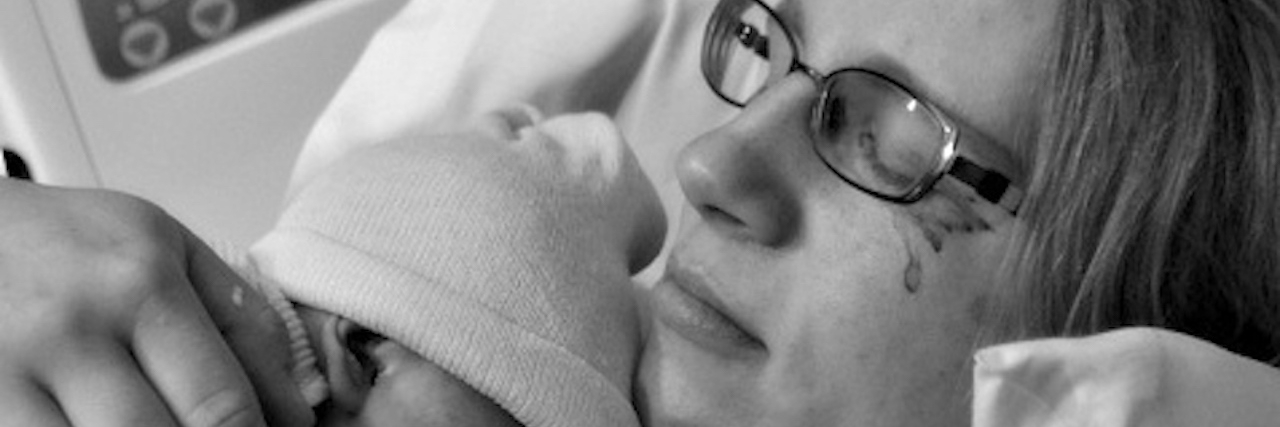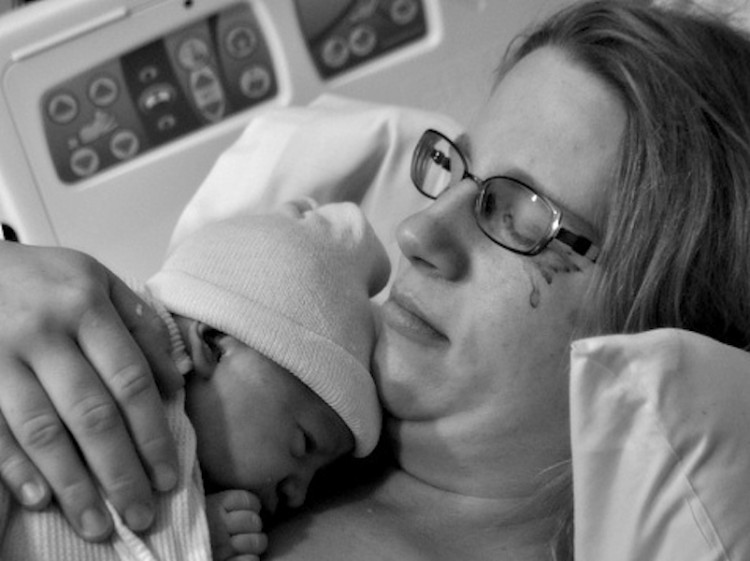Imagine you are a first-time mother. Your sweet baby is weeks old. She reclines in a bouncy chair at the base of your pantry shelves and coos contentedly. You decide that she is docile enough for you to prepare dinner for the evening, and you reach for the crock pot on the top pantry shelf.
As your fingers grasp the heavy appliance, you stop with a jolt. You realize that the crock pot is directly above your daughter’s head. Rather than moving on from that realization, you spend the next few minutes sinking into the horror of not just the idea, but the mental visualization of dropping the heavy crock pot on your infant’s head, the resulting blood and shattered skull, the call to paramedics, the harrowing ride to the emergency room and the eventual death of your child by your own clumsiness.
This was the reality of my postpartum depression and anxiety, and one of many mental challenges I went through as a new mother.
It was not until after my second child’s birth that I began to have issues severe enough for me to seek help. I had a toddler always vying for my attention, and a baby who cried often. I scared myself sometimes when the baby was crying, my daughter was dawdling in the bathroom and I would be so furious I’d grab her arm with force.
Postpartum Woes and My Cry for Help
The emotions I experienced ranged from a perpetual feeling of worry to anger. I would wake up groggy and moody, have some coffee and improve a bit, then sink lower throughout the day. By the time my husband arrived home from work, I usually had hit my threshold, making me useless at tasks like meal prep or bedtime routines.
When I read checklists for postpartum depression, I didn’t exactly fit the description. Most talked about crying every day and feeling in the depths of despair. I felt this once in a while, but more often felt overly stressed, angry, enraged and out of control. The postpartum depression checklists I saw didn’t usually highlight those attributes.
When I broke down and decided I needed help, I started by calling the “stressed-out parents telephone line.” I don’t remember which organization ran this, but it obviously was not for people with mental illness. The person on the other end tried to assure me that all parents have stress, and that I should reach out to the people around me and make sure I take time for myself. The advice was supposed to comfort me, but I hung up feeling emptier than before.
The second call I made was to my obstetrician’s group office. I talked to the nurse, and she informed me that five months postpartum was too far beyond the point for postpartum depression, and that they wouldn’t really be able to help me at their office. She suggested I call my general practitioner. Again, I hung up feeling dejected and alone.
I went on like this for a few more months until the day my husband reached his own breaking point with my anger and negativity. As is sometimes common in relationships affected by mental illness, rather than asking my husband for help, I shut down. The tipping point happened when he ended one of our arguments by saying, “You need help!” He meant it rhetorically, but it was the push I needed. I took him literally, and the very next day I found a counselor.
Part of the initial evaluation was a battery of written tests. I took them home and worked on them for hours over a few days, then returned the completed tests to the therapist’s office and spent an hour or two describing to her my family history, my childhood and my present issues.
A week later I sank into the sofa while my counselor revealed to me the patterns in my test results: depression, generalized anxiety and overall negativity. It was surprising because over the years I had attributed my feelings to moodiness, hormones or my personality. I never considered that they might fall under a formal diagnosis. I worked with the psychiatrist to find the correct mix of anxiety and depression medicines, and finally started to feel like the “me” that had been hiding since my babies were born.
With Experience Comes Wisdom … Sometimes
With the birth of my fourth child, I was well-accustomed to the effects of postpartum depression and anxiety and was able to talk myself out of the negativity for a while. When I prayed for my children at night, I would pray for them to avoid specific ailments and harm. These thoughts would spiral into detailed imaginings of the harm, leaving me in a fit of worry. When I realized this, I was able to scale back the detail in my prayers and avoid the scary pictures. Knowing one’s problems and tendencies is key to finding the solution; however, it’s not always enough.
Postpartum depression and anxiety will always be a part of me. My challenge is in finding the help I need from professionals, my family and friends, medication and literature. Cumulative changes I have made such as finding work to stimulate my brain, asking for help and recognizing my behavior patterns have furthered the healing process. My comfort lies in knowing why my brain goes in the directions it does. I may always struggle with unwanted thoughts and mental images, but I have learned what tools I can use to avoid them taking over my life.
A version of this post originally appeared on for Elysium.
If you or someone you know needs help, see our suicide prevention resources.
If you need support right now, call the Suicide Prevention Lifeline at 1-800-273-8255.
Want to end the stigma around mental illness? Like us on Facebook.
And sign up for what we hope will be your favorite thing to read at night.


